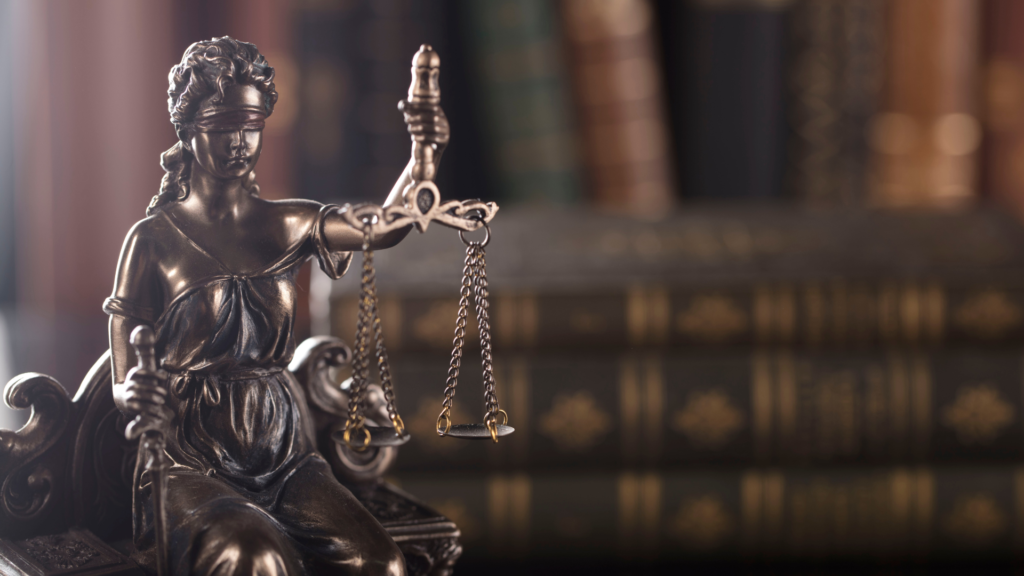The United States is the country with the most extensive court system in the world. The general due process of criminal charges starts with either arresting and charging a person, or presenting evidence against a person to get a warrant for arrest. After arrest, you are brought before a magistrate under oath and brought to trial. If found guilty, you will be sentenced and put on probation or on parole.
If you have ever been accused of a crime, you might be wondering how the criminal justice system works. In this blog post, we take a look at how criminal charges are filed and presented in court, and also provide an overview of the process that follows.
How The Prosecution Works
When a crime is committed, the police investigate the crime and try to find the person who committed it. If they can identify that person, they will arrest them. If the police cannot identify the person who committed the crime, they will file a report with the prosecution.
The way criminal charges work is simple. The prosecutor (the person who represents the government in a criminal case) presents evidence to the court that suggests the person accused of a crime is guilty.
The prosecution is responsible for investigating any criminal charges that are filed against someone. They will ask the police to provide them with any evidence that was used to make their case. The prosecutor will also talk to any witnesses who may have information about the crime.
The prosecutor then asks the court to find the person guilty based on this evidence. The prosecutor will then decide whether or not to bring charges against the person who was arrested. If they decide to bring charges, they will file a criminal complaint against the person. The criminal complaint is a document that explains the charges that are being filed against the person.
The prosecutor also has the authority to negotiate a plea agreement with the defendant. A plea agreement is a deal that is made between the prosecutor and the defendant. The agreement usually involves either admitting guilt or pleading guilty to a lower charge than what was originally filed.
If there is enough evidence to prove each charge in a criminal complaint, a jury trial may be required.
How The Defense Works
When you are accused of a crime, the criminal justice system works to determine whether or not you are guilty. At the beginning of this process, you will be informed of your rights and have an opportunity to talk to a lawyer acting as your defender. Here the main responsibility of the Defendant to defender (that is you to your lawyer) is to give them all the necessary information related to your case without hiding anything specific. This step is crucial, as defense lawyers play a vital role in protecting the rights of the accused and ensuring a fair trial.
One of the key decisions an accused individual faces is whether to have a lawyer represent them during the legal proceedings. There might be instances where you, as the defendant will be unable to afford hiring a legal representative on their own. In that case, the court can step in and appoint an attorney on your behalf.
Alternatively, you can choose to hire a lawyer on your own if you are capable of doing so. If that is the case, then it is essential for you to find someone who can understand the case properly. Therefore, a skilled defense lawyer from a reputable firm like Maduabum Law Firm LLC can ensure that your rights are upheld throughout the process.
The Role Of Judges
How criminal charges work is an important part of the court system. Charges are brought against an individual by law enforcement officials or prosecutors in response to evidence that they have committed a crime.
The process of bringing charges begins with the police or prosecutors gathering evidence and interviewing witnesses. This information is then used to build a case against the suspect. The case may be presented to a grand jury, which decides whether or not to indict the individual. If an indictment is issued, the case moves forward to trial.
At trial, the prosecution must present its case to a jury. The defendant has the opportunity to present their side of the story and can call witnesses to support their argument. If the jury finds the defendant guilty, they will determine the punishment that he or she will receive.
The Role Of Juries
Juries play an important role in the criminal justice system. They are made up of (usually 12 people) citizens who have been selected to hear cases involving criminal charges.
The jurors’ job is to decide whether the evidence in a case proves that the person accused of a crime is guilty. They listen to the evidence presented by both sides in a court case. The jury trial is an important part of the American criminal justice system because it gives everyone a fair chance to have their case heard by a group of their peers.
Juries can sometimes be influenced by what they see and hear during the trial. This is why prosecutors try to present as much evidence as possible to support their case. Juries also have the power to find people not guilty of crimes, even if the prosecutor has enough evidence to prove their guilt.
Legal Proceedings And Sentencing
The criminal justice system in the United States is a complex and intricate system that includes criminal charges, court proceedings, and criminal sentencing. Criminal charges are filed by law enforcement officials against someone they believe has committed a crime. In most cases, the person charged will be given an opportunity to have an attorney present during the initial stages of the criminal justice process. Once criminal charges are filed, the prosecutor will decide whether or not to file a formal criminal complaint. If the prosecutor decides to file a formal complaint, then the accused will be served with a copy of the complaint and have an opportunity to respond.
The accused may choose to have an attorney represent them during this stage of the process, but they are not required to do so. After the accused has had an opportunity to respond to the complaint and before any preliminary hearings take place, the magistrate judge will likely issue a warrant for the accused’s arrest. A preliminary hearing is an opportunity for the accused to present witnesses and evidence in support of their defense and potentially negotiate a plea bargain with prosecutors. If at a preliminary hearing, it is decided that there is enough evidence to proceed with a criminal trial, then a formal criminal complaint will be filed with the court.
Restorative Justice principles may also come into play at various stages of the criminal justice process. Restorative justice focuses on repairing the harm caused by crime by involving all parties affected – victims, offenders, and the community – in finding solutions that address the underlying causes of the offense.
This approach can complement traditional legal proceedings by offering alternatives to incarceration, such as mediation or community service, which aim to promote accountability and rehabilitation while fostering healing for victims and communities. Therefore, alongside the formal legal proceedings outlined above, restorative justice practices may be integrated into the criminal justice system to provide opportunities for resolution and reconciliation.

